Trust us when we’re saying that cybersecurity software can benefit any operating system. Reviews that we and other services publish are meant to make cybersecurity tools more accessible and enhance the Internet’s general safety.
When there is an attack, the target of it can be your computer, while you will have to deal with it. There are vicious viruses out there that can create your powerful PC into an incubator. After it, they can distribute themselves further throughout the Web. Malware and hackers evolve and improve every day, and the best antiviruses become the final frontier in protecting your PC and your digital identity.
Today, you can stumble upon a cyber threat in any corner of the Internet without even knowing it. Not only does malicious code end up in safe store apps even; it can get to your laptop via website pop-ups. How? You may click on a good-looking message or download an innocent file. Later, you will realize that it is something different. Some malware may end up infiltrating your computer when the site loads.
Operating systems enhance their cybersecurity and create unique cyber environments to prevent as many threats as possible. Sometimes, their approach may require additional help. Even Linux, the safer of the trinity, may require it. Antiviruses are more flexible, updated continuously, and tuned into the cyber-threat frequency, and specifically designed to keep you and your device safe.

What Is the Best Antivirus for Linux?
- Sophos – Lightweight and almost invisible (check our full review)
- ClamAV Antivirus – Email security, open source
- ESET – Effective anti-spyware tools, strong protection (find out more in our review)
- Comodo – Sandbox and other useful features (get more information from our review)
- Avast – Mail server protection and anti-malware (read full review)
- Bitdefender – Cloud protection & anti-ransomware features (review)
- F-Prot Antivirus
- Hunter
Do Linux Users Need an Antivirus?
As shocking as it sounds, Linux is not entirely impenetrable as users often perceive it to be. Indeed, its operating system is more secure and stable than OS X and Windows. The reason is the open-source privilege. However, there are cyber threats out there capable of impacting its performance and overall health. Although such chances are slim, better be safe than sorry.
There are various ways that Linux can get compromised. Nowadays, we connect to any Wi-Fi spot anywhere without even thinking about its security. Such “hot spots” may carry trojans or be the hunting ground for some individuals that will seek out specific vulnerabilities as soon as you’re in.
Additionally, someone skilled can hop on your traffic rail and tap into your life. In such cases, both only your security and your privacy may get affected but. With extra layers of security, you are likely to be invisible, and that applies to cybersecurity as well.
Antivirus for Linux is required to protect it from specific threats explicitly constructed to bypass its conventional security mechanisms. Among others, they may be in the form of malicious URLs, email attachments, and rootkits. There are other types, but these are the most common and useful.
Without a Linux antivirus, your PC may also become a carrier for Windows or macOS viruses that may stay hidden in a script, file, or document. It is unlikely to infect your Linux, but they can harm users with other operating systems if you come to share those files.
With this in mind, not only do you need an antivirus for Linux to protect yourself, but you also need it in order to prevent the spread of malware unintentionally. Like with cybersecurity software for Windows and macOS, there are paid and free versions of Linux antiviruses. Although there aren’t as many offers, there are a few trusty ones you should consider, the highlights of which we shall discuss below.
Best Linux Antiviruses
1. Sophos Antivirus
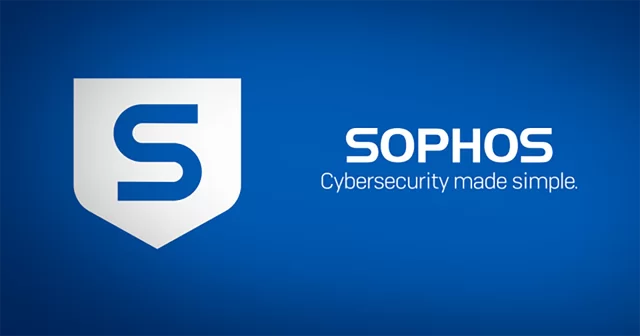
Sophos is one of the most popular and top-tier antiviruses for Linux on the market. It’s simple to use but requires some time and practice if you’re not a computer geek. Sophos does a great job at detecting, dealing with, and preventing trouble from knocking on your Linux’s door.
- Detects threats meant for other OS
- Lightweight and stealthy
- Can run through the terminal
- Doesn’t come with a graphical user interface
- Anti-ransomware is a paid option only
- Can exclude files from the scan
Features:
- Terminal base
- Real-time scanning
- On-demand scanning
- Firewall functions
- High threat detection rate
Sophos is a trusted cybersecurity software that is highly effective for a wide range of threats to Linux. It has a formidable scanner built-in which detects and eliminates viruses, including Trojan and worms. It is also capable of detecting online threats or suspicions and blocking them out before they reach you.
Sophos for Linux comes with an on-demand and real-time protection options, so you can run either of them and set up the protection patterns the way you want them. Upon the detection of viruses or malware, Sophos will move them to the quarantine in a separate repository and offer you ways to deal with them.
Another great feature is that it detects threats meant for other operating systems. While other antiviruses for Linux may be created only for specific codes designed to harm Linux, Sophos is good at detecting all sorts of threats. It will help you catch and remove those threats so that your Linux doesn’t become a carrier for viruses.
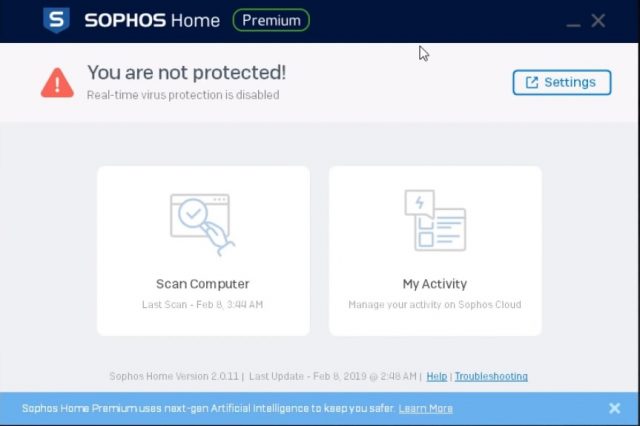
Sophos paid version has more to offer: it has learning abilities to block out even new malware; anti-ransomware; enhanced real-time; anti-phishing; banking protection; password managers; and others. You can get the impressive paid Sophos arsenal for only $36/year for up to 10 devices, saving $60 compared to monthly billing
Technically, Sophos comes with a free version of its tool which, as one might expect, doesn’t hold all the features available in the paid version. You’ll receive a 30-day trial version will all the features, most of which will expire after the trial period. However, you’ll be able to enjoy some of the functions even after it ends.
Among others, these features include real-time antivirus, parental control, website protection from malicious URLs, and remote management. The latter allows securing other devices remotely. There is much you’ll miss out on, but the Sophos free version will cover most basics for Linux.
2. ClamAV Antivirus

It is another highly respected and widely known antivirus for Linux. It’s easy to use and has a clear-cut approach to design and functioning. ClamAV is installed directly to your PC repository. The detection and protection rates of this brand are high and won’t leave your PC hanging.
- Portable and free
- Great mail protection
- Lightweight and stealthy
- Excels in detecting Trojans
- No native graphical user interface
- No sophisticated security features
Features:
- Open-source
- Cross-platform
- Firewall-like and antivirus functions
- Mail gateway security
ClamAV for Linux is an open-source type program, which means it’s directly installed to your repository. You’ll be running it via the command line. It’s very versatile and doesn’t impact your system at all while you run the scans. There are no paid versions, so you can download it and cut to the chase right away.
ClamAV is a versatile, apt antivirus that has excellent rates of detecting Trojans, worms, malicious email attachments, and other malware. Its open-source format, which runs it directly from the repository, is great for working with sensitive data. Its protection is executed more acutely, straight from the system, and not separately.
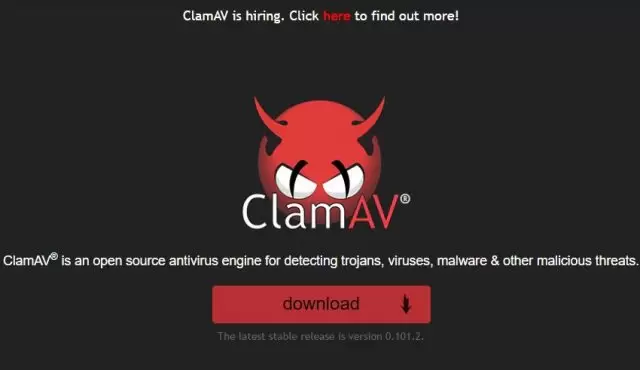
This antivirus has quite a deep scanner built in it. ClamAV can look into most archive types, ELF executables, popular office document formats, portable executable files, and others. Its databases are updated a few times a day, keeping it actual when it comes to new threats.
This Linux antivirus also has a very strict mail gateway security that supports almost all mail formats. Mail may hold various malicious links, viruses, or malicious code that can run even upon opening it. ClamAV’s mail gateway makes sure that you won’t open any mail holding suspicious data.
Like with Sophos, there’s no native interface which may be a bit challenging for an average user. Nonetheless, you can download an external GUI for ClamAV. Perhaps it’s not the most heavily armed Linux antivirus, and it doesn’t have other, more advanced layers of protection. Nonetheless, ClamAV provides great baseline protection from rootkit, Trojan, malicious code or URLs, and other viruses.
3. ESET NOD32 Antivirus
The bigger players couldn’t overlook the Linux cybersecurity market. ESET NOD32 is one of the mammoths in the world of antiviruses. The company created an impressive cybersecurity software attuned to the distinctive features of Linux platforms. It’s considered to be the best antivirus for Linux on the market.
- Excellent malware detection
- Excellent in dealing with rootkits
- Compatible with Ubuntu, Fedora, and Red Hat, Suse, Debian, and Mandriva
- Excels in detecting Trojans
- Lightweight and stealthy
- May have issues in blocking malware with signatures
Features:
- Network security
- Antispyware
- SysInspector Tool
- Spying detector
- Strong antimalware and antivirus
Unlike the previous two variants, ESET NOD32 is a full-fledged cybersecurity program with a set of valuable functions to protect any Linux platform you’re using. Its antivirus package will ensure you real-time protection, scheduled scans, antiphishing, won’t let malicious code run in apps and more.
There is no free option for this Linux antivirus, unfortunately. You can enjoy all of its functions by downloading its free trial version. However, you’ll only have 30 days to enjoy the excellence of ESET NOD32, after which you’ll have to decide whether to buy their subscription or not for $49.99/year per device.
It’s not as expensive, considering how strong ESET NOD32 is and what it brings to the table. The Premium package will include Parental Control and Personal Firewall in addition to what the regular package holds. Valuable features, indeed. The decision depends on whether you want it for home/work use and the way you use the Internet.
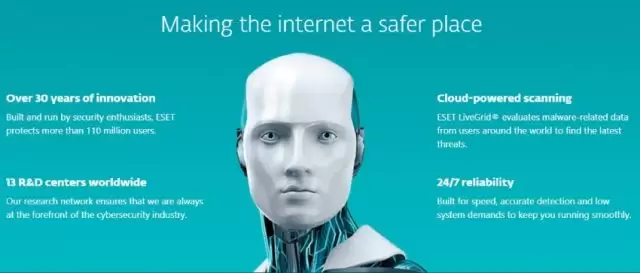
ESET NOD32 for Linux comes with its entire antivirus database. It will detect threats meant not only for your OS but for Windows and macOS, too. Despite them not being executable on your Linux, you can transfer them to other PCs, including your other OS, where they may cause damage. It’s a great feature to have.
This antivirus has sophisticated real-time protection that will prevent any online threats from hitting you. ESET NOD32 has a great URL scanner that will analyze the traffic and hinder any malicious data from reaching your PC. Considering how many sites we open daily, it’s a must-have feature.
It also offers you the benefits of its iconic SysInspector tool. This feature is an in-depth evaluator of registry keys, files, running programs, and other system sections for any potential risks in your security and performance. Such a tool removes cracks in your PC’s performance so they can’t be used by malware.
Additionally, this Linux antivirus has acute anti-spyware and antivirus that will detect any malware or viruses while you surf or on your system. ESET NOD35 is a well-rounded mammoth of antivirus with exceptional algorithms and protocols designed to bring its fabled cybersecurity to the realm of Linux platforms.
4. Comodo Antivirus
Another formidable option is Comodo. This antivirus has a smart architecture and behavior analysis, making it capable of detecting suspicious activity even in data that isn’t in its library. Comodo is an intricate, cross-platform antivirus that offers a series of exclusive features its competitors don’t.
- Easy to use
- Upholds both 32-bit and 64-bit systems
- Compatible with Ubuntu, Fedora, and Red Hat, Suse, and Debian
- No web filter
- Lower malware detection rates than competitors
Features:
- Real-time protection
- On-demand, scheduled, cloud-based scanning
- Sandbox
- Email filtering
The most enjoying characteristic of Comodo is that it’s free. Considering that you pay nothing for it, the brand offers an incredible cybersecurity option. While Comodo may not be as uptight and strict as ESET NOD32, it will provide you with enough layers of security. It’ll keep your Linux out of most regular online threats.
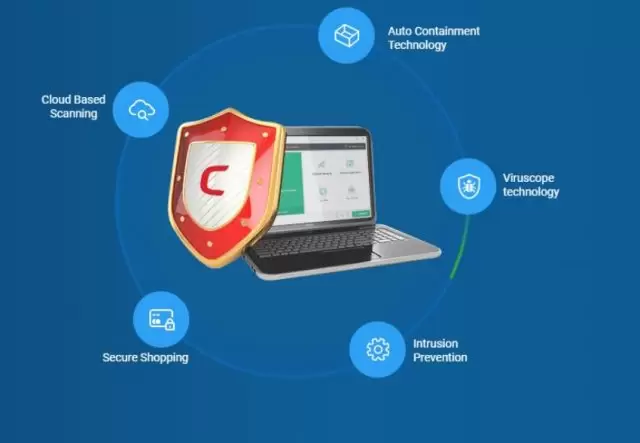
This Linux antivirus has an option for you to run browsers in a sandbox. It’s a handy feature since it protects traffic and, subsequently, your privacy, including financial data that you type in. On top of that, Comodo is able to create a virtual desktop, creating a safe space outside your main one in case trouble arrives.
Comodo possesses a powerful email gateway that will keep any threat out of your email box and your computer, respectively. That being said, it’s compatible with SendMail, Postfix, EXIM MTA’s, and Qmail. It flawlessly filters spam and excellently blocks malicious emails, putting them into quarantine.
Another great feature Comodo has is behavior analysis. Although its virus database is updated regularly, there are still threats that may not be enlisted there. If Comodo antivirus notices any suspicious activity or code threatening your Linux, it will block it out and upload its imprint into a cloud for safety analysis.
There is an issue of it being not the best antimalware program since it has not web filter, protecting from malicious URL. It also means it’s not as good as detecting malware en-route its competitors. However, you can scan them out, and it compensates with other great features. Comodo is a reliable, well-made Linux antivirus with decent privacy and cybersecurity functions worthy of your attention.
5. Avast Core Antivirus
Avast Core created its antivirus version for Linux with an approach that differs significantly from the ones it has for other platforms. The brand integrated its most baseline, multidimensional security options to create straightforward security software that would meet the no-nonsense spirit of Linux products.
- Supports 32-bit and 64-bit software architectures
- Detects malware on dual-booted systems
- Lightweight and stealthy
- Compatible with Ubuntu, Red Hat, Suse, and Debian”
- Bonus features require separate purchases
- Expensive
- For 1 device only
Features:
- Real-time protection
- Anti-spyware
- On-demand and scheduled scanning
- Network security
- Mail server protection
- Home and commercial suitability
Unfortunately, Avast Core antivirus for Linux has no dedicated free versions for its platforms. You’ll be able to get a taste of its tough security functions for a 30-day trial after which you’ll be tasked with deciding whether to buy a subscription or not. Either way, it will be a valuable experience, and you can see it in action firsthand.
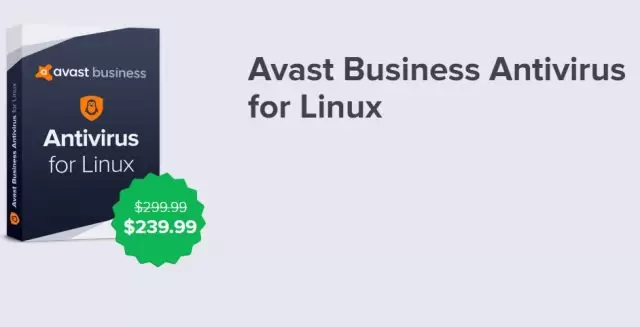
You will receive two options to follow in the Avast Core for Linux package. Your computer will get the best of Avast core protection from all viruses in the form of a scanner and a command line, installing its cybersecurity directly into your repository. It’s easy to run and gets direct access to all files you assign it with.
Unlike some of the other mentioned options, Avast Core for Linux also provides you with a web filter. It has solid online security, protecting you from entering any malicious websites or downloading and running suspicious files. It has a great core scanner coupled with a real-time antimalware, so double the security.
On top of that, the brand offers traffic and router scanning. Avast Core can ensure that your network is secure from any unwanted stowaways. The latter can both use your network and monitor your traffic, thereby invading your privacy. None of that will happen with Avast Core.
Another handy function in the package is integrated mail server protection using AMaViS. It’s a separate interface between the mailer (MTA) and those who check the contents that is ready-to-integrate with mail scanners. Integrating Avast Core into AMaViS updates its configuration and scans mail contest.
Overall, Avast Core antivirus for Linux is a powerful security tool that installs itself deeply into the platform’s repository, offering on-hand, real-time multi-layered protection. The price is quite biting, considering it’s for 1 server only — $259.99. There are often discounts, so be sure to wait for them. It is a trial version only. You will have to decide whether you want its pricey services later but those 30 days are enough to enjoy first-class cybersecurity and make a call.
6. Bitdefender Antivirus
This software is another versatile contender among the best antiviruses for Linux. It’s a powerful cybersecurity software that offers protection for dual-booted systems, if required, scanning and protecting both Linux-based and Windows-based drives. This antivirus has an interesting set of features you might find unique among the list.
- Deep archive scanning
- Desktop integration
- GUI and command line
- Network security
- Supports 10 devices
- Highly sophisticated tool for advanced users
- Heavy-duty real-time and on-hand protection
Download Bitdefender for Linux
Features:
- Real-time protection
- On-demand and scheduled scanning
- Behavior learning ability
- Anti-spyware
- Anti-ransomware
- Two-way firewall
- Full disk encryption
- Cloud Protection
Similarly to other cross-platform cybersecurity brands, Bitdefender for Linux offers you the option to glimpse into its artillery-type antivirus for a 30-day trial period. There are certain additional features that you will also have to purchase, like Whitepaper, but that is up to you. The trial version has the full standard purchase range but for a limited time.
Bitdefender for Linux has an AI that supports a learning curve keeping away even malware that isn’t in its library. It has a highly advanced real-time scanner that spots malicious or suspicious behavior in the files and hinders you from running them immediately. It uploads an imprint into a secure cloud for scanning and then lets you know whether it’s safe.

The brand also provides you with a powerful web filter, network security, and malware scanner, enclosing your device into a nutshell that is almost impossible to hack. It detects and blocks out malicious code, rootkit, malware, phishing, all types of malware and keeps hackers away thanks to its two-way firewall web monitoring.
Ransomware is something Linux is quite vulnerable to and many brands either don’t offer anti-ransomware or provide it as an additional paid function. Bitdefender has a heavy-duty anti-ransomware that will keep those nasty hacker tricks out of your system for good.
Bitdefender for Linux has a uniform, well-designed GUI in the form of a command center from where you can run all functions and observe all reports. The brand offers a yearly subscription for 10 devices for $369.99, but it constantly puts out discounts, so it’s possible to snatch an awesome deal. Be sure to check out Bitdefender for Linux and its full list of functions in this link.
7. F-Prot Antivirus
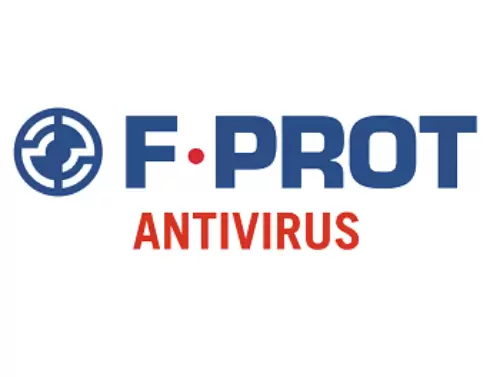
It is another well-known Linux antivirus that offers a well-rounded security experience for workstation users who want simple decisions. F-Prot Antivirus for Linux has several packages, offering distinct variants of cybersecurity, designed to fit different needs.
- Protection against Trojan, boot sector and macro viruses
- Portable
- Lightweight and stealthy
- Packages too diversified
- Cluttered interface
- A bit hard to get used to
- Expensive enough
Features:
- On-hand and scheduled scanning
- Scans drives and drivers
- Advanced heuristics to detect new threats
Linux users don’t get the Windows privilege, which is a free home version. There are only corporate decisions available for Linux platforms. These packages are diversified based on what kind of protection the enterprise wants and how localized is its network and business process.

There are three F-Prot for Linux packages available, which are Workstation ($29), File Server ($130) and Mail Server ($299). Sadly, the prices offer keys per one device only. Considering what its competitors offer, this is quite pricey for what you get. Nonetheless, it’s a formidable cybersecurity software worthy of attention.
The Workstation version will provide you with a constantly updating antivirus database and a command-line scanner. It has a deep scanner that removes threats without damaging files. Scans devices, drives, archives and compressed executables for macro viruses and Trojans on-hand or as scheduled.
The Mail Server version, on top of the mentioned ones, includes a daemon and a mail scanner. This F-Prot for Linux package has plug-ins for scanning mail contents, compatible with Postfix, Sendmail, and Qmail systems. Scans all types of directories, mounted files, filesystems, and archives, removing threats without damage and residue.
The File Server package encloses all of F-Prot for Linux functions designed to integrate with your file servers and everything that’s connected to or runs through it. It will keep your localized business network safe from any viruses or Trojans, or other suspicious activity within the system. Check out F-Prot for Linux packages for more detailed information about its features and benefits.
8. RootKit Hunter

This software is an interesting option, not like any of the previously discussed antiviruses for Linux. RootKit Hunter for Linux is an open-source cybersecurity software that’ installed directly into your repository and works to prevent any rootkit or other backdoor viruses from hijacking your privacy.
- Lightweight and stealthy
- Excellent score on rootkit-type protection
- Easy to use
- Runs for specific types of viruses and malware
- Manual protection
Download RootKit Hunter for Linux
Features:
- Portable
- Uses SHA-1 hash comparison to detect malicious entries
- Utilizes backdoor to detect viruses
RootKit Hunter for Linux is a free open source cybersecurity tool that is designed to scan your system for suspicious activity. It’s not designed to monitor your online activity, provide anti-ransomware protection, or run firewalls. It’s a no-nonsense anti-rootkit tool just like its name suggests.
Using the command line, you’ll be able to run its scanner on all of your files, detecting any potential privacy threats. It utilizes backdoor and other local exploits to detect threats. RootKit Hunter will also detect wrong permissions for binaries, identifies suspected strings in KLD and MKL modules, and looks for hidden files.
That being said, RootKit Hunter for Linux is more of a dedicated layer of protection rather than a full-fledged antivirus. It’s a free tool that you can download and run on par with some other free Linux antivirus security tools that. Be sure to check out for more info on RootKit Hunter here.
Free vs Paid Antiviruses for Linux

The answer to this question is not clear-cut. Not all of the paid antivirus options offer the most well-rounded cybersecurity for your Linux. On the other hand, not free versions include the necessary layers of cybersecurity, which means that some sections in your system remain unguarded and vulnerable.
Brands who provide trial versions offer the most multidimensional paid antivirus protection. These brands use trials as bait, yes, but also as a way for you to see how good and reliable their cybersecurity software is. Usually, free trial antivirus versions for Linux offer the most heavy-duty protection on the market if you decide to buy their subscription later on.
Other immediately on-purchase options try to devise unique sets of cybersecurity layers for an attractive price. Usually, they will have good core scanners, real-time protection, and firewall-like functions. Such options are great if you’ll be buying them for home use or workstation use that doesn’t require the full cybersecurity beat.
Free Linux antiviruses will offer you a limited security option in the form of an on-demand scanner that will identify common threats hidden in your system. However, they will usually lack web filters, network security, anti-ransomware, firewall functions, and other layers that not only protect but also prevent your security and privacy from getting compromised.
Whatever you decide to choose, be mindful of your digital necessities, online behavior, and the kind of work you perform on your device. If you’re an enterprise that uses Linux and that deals with sensitive info, it’s better to consider the heavy-duty corporate options. If you’re somebody who needs a few extra touches for your home Linux system, then check out the free or cheaper versions and see which resonates with you better.
How to Choose the Best Antivirus for Linux

There are various platforms Linux has, all of which have their particularities and are not universal. When deciding which antivirus to choose for your Linux, be sure to check out the brand’s compatibility with your particular platform. If there is no apparent information present, contact their support, and ask about compatibility.
Study the features of an antivirus attentively. There are various layers of protection, including real-time antimalware and anti-malicious URLs, scheduled and on-demand scans, anti-spyware, anti-ransomware, anti-rootkit, antiphishing, and other features. The more, the better. Look for signs of it not having much burden on your system to ensure everything runs smoothly and doesn’t conflict.
Be mindful of what kind of information you’re working with, in which networks and for what purposes. If you’re just a regular user, then a few extra layers protecting you from viruses and phishing will be enough. If you’re dealing with serious work and data that can compromise your enterprise and your partners, then be sure to opt for the most secure option.
Of course, branding matters as well. Do your research on the brand, see how it fares with antivirus review platforms, check independent labs, like AV-test, to see their verdicts. Don’t use new or unknown brands, for they can even turn out as those who will compromise your security. Do your homework on the antivirus before you decide to buy it.
How We Tested
We perform various tests to see how a Linux antivirus performs, using our options, and via surfing. For example, to test the real-time protection, we download a folder of malware-infected files. We test how the antivirus prevents files from being downloaded and from running once downloaded.
To further test the real-time protection and web filters, we try to access different malicious or suspicious websites. At this point, we see whether the site is blocked from being open and, if not, then did any information get leaked or did malware end up on our PC. We have specialized tools to monitor what happened during the configuration.
Similarly, we try to infect the system with ransomware, spyware, rootkit, Trojan, and other most common types of viruses included in the latest libraries. Sometimes we step outside the enlisted features to see how vulnerable the OS is without extra layers of security.
Bottom Line
Keeping your operating system cyber-secure is the same as keeping your real-life identity safe from potential physical threat. Nowadays, your computer, even though it uses a Linux, which is quite secure, holds all the information on you. One successful phishing, ransomware, or spying, is enough to deal you a horrible blow.
Free antivirus options for Linux are diverse and not a bad extra step to enhancing your cybersecurity. However, free options are more of an appetizer to check how vulnerable your system is without it and understand that cybersecurity is a thing. In case of protecting your OS, it’s always better safe than sorry.
Be mindful of how you use your computer, where you use it, for what purposes, how you behave with it, and what type of information you’re dealing with. All of these factors will define which antivirus you should choose for your particular Linux platform. Whatever the option, do choose at least one to ensure that your PC and your digital identity are safe and sound while you’re being connected to the unpredictable world of the Internet.
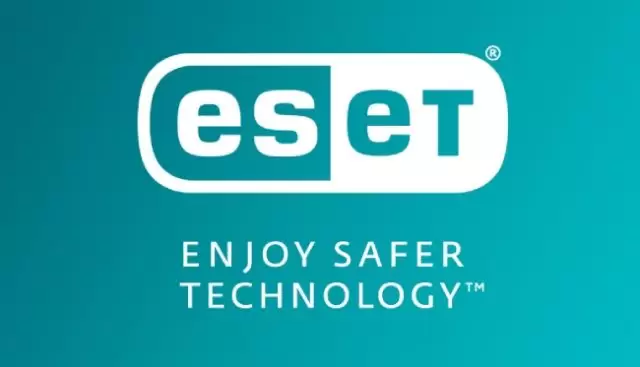
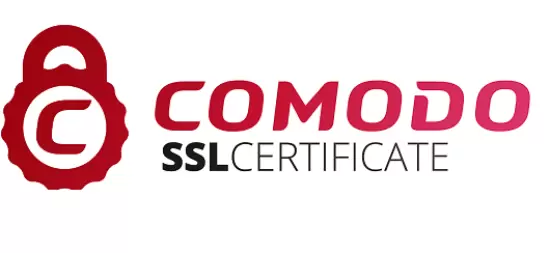

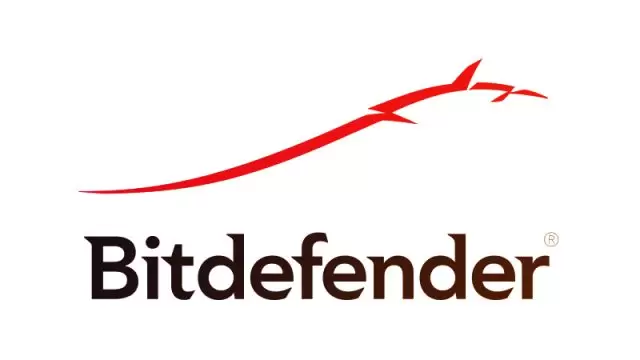

Why Dr.Web Security Space for Linux is not mentioned in this article?
This is effective and very much affordable solution with 90 days free trial. It definitely deserved to be mentioned.
I have been in contact with Bitdefender support. The consumer version of Bitdefender has been discontinued, with no plans to re-offer it. Their commercial offering (meant for deployment on servers) do support Linux, but is much more expensive and is managed by Bitdefender GravityZone, as opposed to Bitdefender Central for consumers.
As for Avast, it’s also marketed towards enterprise. Also, the $300+ price tag is obscene for consumers, and there less expensive options out there.